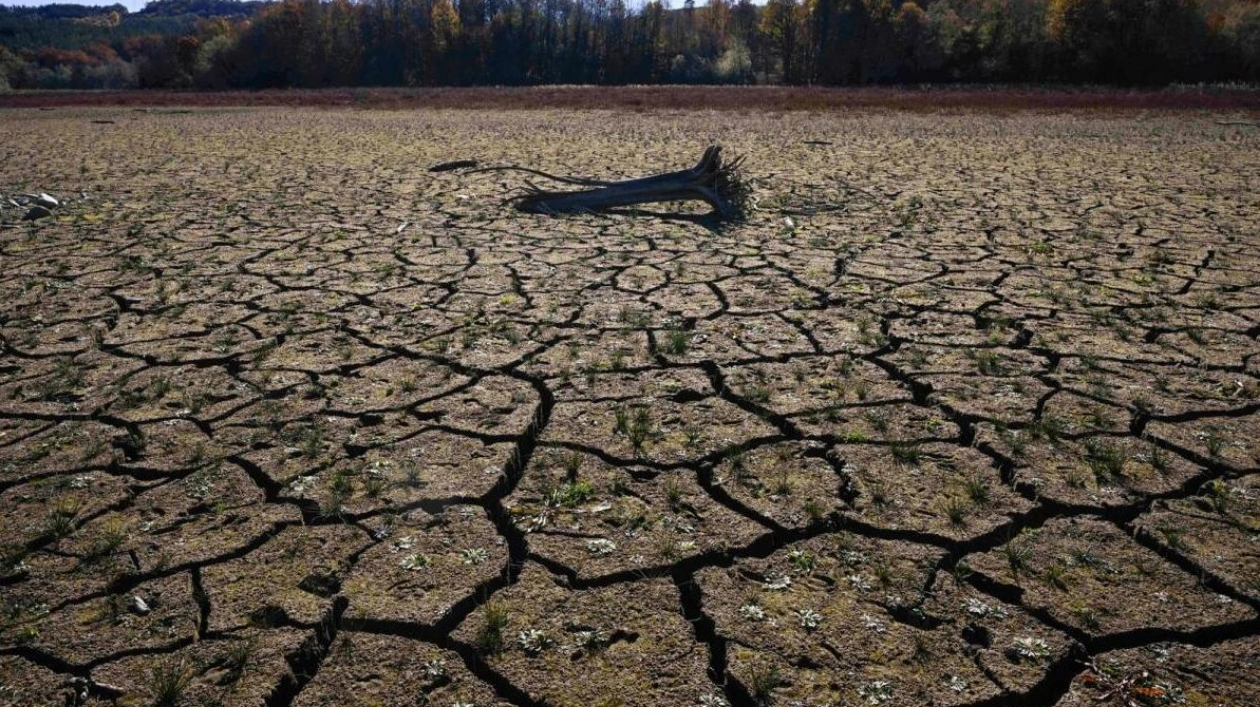The dried Yovkovtsi dam, near the town of Elena in Central Bulgaria, on November 08, 2024, stands as a stark reminder of the growing climate crisis. Experts warn that record-breaking heat, extreme weather events, air pollution, and the spread of infectious diseases are escalating threats to global health.
As the latest round of UN climate talks, COP29, kicks off in Azerbaijan, the world is bracing for what is expected to be the hottest year on record. This comes in the wake of climate skeptic Donald Trump's re-election as US president, casting a shadow over international climate efforts. Despite increasing levels of planet-heating fossil fuel emissions, nations continue to face devastating floods, droughts, heatwaves, and storms.
The World Health Organization (WHO) has issued a stark warning: "Climate change is making us sick, and urgent action is a matter of life and death." The EU's climate monitor predicts that 2024 will likely surpass 2023 as the hottest year ever recorded, exceeding the 1.5-degree Celsius mark above pre-industrial levels.
The Lancet Countdown report highlights that 10 out of 15 tracked health impacts of climate change have reached concerning new records. Notably, the number of heat-related deaths among those over 65 has surged by 167 percent since the 1990s. Extreme heat poses significant health risks, including kidney disorders, strokes, adverse pregnancy outcomes, cardiovascular and respiratory diseases, organ failure, and death.
Jeni Miller, executive director of the Global Climate and Health Alliance, emphasizes the escalating health impacts of climate change, citing extreme heat events in India, dam collapses in Nigeria, and widespread droughts in the United States. Spain is still reeling from its deadliest floods in decades, while the US and Cuba are recovering from recent hurricanes.
Droughts, floods, and other extreme weather events are expected to disrupt global agriculture, leading to increased hunger. Air pollution, affecting 99 percent of the world's population, is linked to respiratory diseases, strokes, heart disease, lung cancer, diabetes, and other health issues, comparable to the dangers of tobacco. The WHO estimates that nearly seven million premature deaths annually are linked to air pollution.
On a positive note, the Lancet Countdown report indicates a nearly seven percent decline in deaths from fossil fuel-related air pollution between 2016 and 2021, largely due to efforts to reduce coal burning. However, the changing climate is expanding the habitats of mosquitoes, birds, and mammals, increasing the risk of infectious disease spread. Mosquito-borne diseases like dengue, chikungunya, Zika, West Nile virus, and malaria are expected to spread more widely.
Storms and floods create stagnant water, ideal breeding grounds for mosquitoes, and increase the risk of water-borne diseases such as cholera, typhoid, and diarrhoea.
Source link: https://www.khaleejtimes.com






